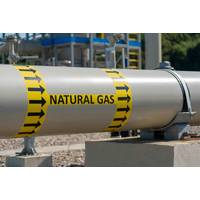Reactor Leak Halves Belgian Nuclear Output
Belgian energy prices rise with higher import needs; nuclear power typically meets 50 pct of Belgian power demand. Nuclear shortfall can be met by power and gas imports.
More than half of Belgium's nuclear capacity is offline after an oil leak was detected at a reactor, pushing up power prices and leading to higher demand for gas just as Russian exports to Europe appear increasingly uncertain for the upcoming winter.
Belgian energy company Electrabel said last Thursday it had shut down its Doel 4 nuclear reactor following the oil leak. Investigations are under way and Electrabel said it hoped to restart the reactor as soon as possible.
Two other Belgian nuclear reactors - Doel 3 and Tihange 2 -have been closed for testing since 2012 following the discovery of cracks in the steel reactor casings.
Electrabel, owned by French gas and power group GDF Suez , operates seven nuclear reactors in Belgium - four at the Doel site and three in Tihange.
Including the loss of output at Doel 4, just over 3 gigawatt (GW) of nuclear capacity is now offline, more than half of Belgium's nuclear capacity of 5.7 GW, which can generate almost 50 terrawatt hours (TWh) of electricity per year, meeting over half of Belgium's annual electricity demand of around 90 TWh.
Neither Electrabel nor Belgian grid operator Elia were available to comment on the effects of the nuclear outages.
Belgian wholesale power prices for next-day delivery were up 1.25 euros (1.674 US dollar) per megawatt-hour on Monday to 37 euros a MWh.
MORE IMPORTS
To make up for the shortfall in nuclear generation, Belgium could import more power or switch from nuclear to gas-fired electricity generation.
"There is still a lot of capacity which can be used," said Carolin Tandberg, analyst at Thomson Reuters Point Carbon.
Belgium is currently importing around 2 GW of gas out of a total import capacity of 5 GW. Belgium typically imports almost a third of its gas from Norway via North Sea pipelines and around a quarter from the neighbouring Netherlands.
Norway has said it has spare gas, but would only export more if it made commercial sense.
Belgium can also import large quantities of liquefied natural gas (LNG), largely from Qatar, via tankers through its terminal at Zeebrugge.
Yet importing more gas could be problematic during the upcoming peak demand winter season as Belgium could find itself competing with other European nations because of knock-on effects from the Ukraine conflict.
By Barbara Lewis and Nina Chestney








